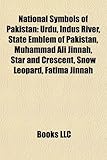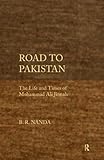By Lt. Col. Najmuddin Mirza (Retd)
THE word Urdu has a very wide and great interest for the Muslims of the subcontinent and of special interest to us are the stimulating keynotes of the poetic genius and the love of poetry which ignite our imagination and inspire us to evaluate the literary heritage in historical perspective.
The dramatic dissolution of the British Raj and the consequent emergence of two independent and sovereign states, India and Pakistan, in 1947 were a unique phenomenon in the modern history. It may well be claimed that Urdu as language played a very significant role in the creation of a separate homeland for the Muslims of the subcontinent.
The evidence of the above mentioned radical change and the imminence of Hindu-Muslim conflict had long been visualized in one form or the other since the disastrous effects of the Revolt of 1857, which compelled Muslims to establish their identity afresh.
Among the initial steps, the use of Urdu was one. The ability to appreciate poetry, as also to recite and compose fair verse was held in high esteem and regarded as a necessary attribute of a cultured Muslim. The taste for poetry spread to all levels of society, and was a characteristic element among literary circles.
About half a century ago or so, people listened to poetry with delight and took a public view of it, unlike Europe and other English speaking countries where poetry is taken as a “private” affair. As a matter of fact, poetry never bored Muslims of the subcontinent and they cherished the idea of listening to it at mushiaras and gatherings such as Anjuman-i-Himayatal Islam etc — never ever tying to analyze or think about it’s theme or it’s meaning. If it was Ghalib, Iqbal, Hali or someone of that stature, it was sufficient guarantee that the verses were really beautiful and conveyed our feelings.
First of all, it was through the verse of Hali and then of Iqbal in particular that the listener regained the departed greatness of Muslims by hearing from the poet’s mouth the laments of the former glories of Islam. This positive aspect of poetry which liberates the imagination from the narrow and oppressive disciplines and calls into action creative and progressive impulses that lay dormant under adverse situations were instrumental in expressing our intellectual and literary traditions. As well as it was used with astounding effect to convey our anguish in the long drawn struggle for Muslim independence. There was of course no such thing as “nationalism” in Ghalib’s days, yet for the poet’s real and natural feelings about the destruction of Delhi in 1857, one must turn to his writings. For example, in his celebrated “qata” to his kinsman Nawab Alai of Loharu, Ghalib described the dreadful plight of Muslims and the British revenge which was deep and dire.
Later, when “nationalism” became the dominant creed, the Muslim political outlook crystallized into a significant sense of separateness. The challenges posed by the Hindus and the British were first met in 1879, in the literary and religious self-consciousness of Hali, the poet of Islamic Renaissance. Hali’s famous and moving Mussaddus provided the first major epic sweep through his soul-stirring verse which took Muslims of India by storm and his became the household name throughout the length and breath of the subcontinent. Besides, the Mussaddus was a landmark, being the first poem of its genre written after 1857 that switched over poetry to a non-romantic pre-occupation.
The period between 1900 and 1938 witnessed some of the most crucial events in the political and global process. There was the First World War (1914-18), there was the Khilafat Movement and last but not the least the Swarajist agitation and the phenomenal rise of the Hindu-dominated Congress. At this juncture, Allama Iqbal dominated the Muslim political scene. He launched his crusade, as the poet of Islam, among other works with his renowned Shikwah, attracting large and highly appreciative audiences everywhere. Then through his philosophical verse and powerful muse, he gave a clear message to his co-religionist reminding the masses of their fate as a powerless minority in the land where their forebears had till recently reigned supreme from Khyber to the Deccan. Iqbal’s religiously charged and flaming poems not only shook the faithful out of their slumber but also diverted the Muslim mind towards separatism. Needless to emphasize that Pakistan came into being only nine years after Iqbal’s death in 1938.
Thus, the outlook of Muslims of the subcontinent be viewed against the background of the poetry of Ghalib, Hali and last but not the least Iqbal. Undoubtedly the poetry of these three and a few others after them are integral to our cultural and political heritage and it is gratifying to note that since partition many poets and writers have contributed immensely towards enhancing the importance of Urdu as a major symbol of our cultural and aesthetic sense.
Let us also remember the words of the Quaid-i-Azam “(URDU) embodies the best that is in Islamic culture and Muslim traditions… It is not without significance that Urdu has been driven out of the Indian Union and that the official use of the Urdu script has also been disallowed.” Urdu was thereafter adopted as the national language of Pakistan where it has flourished despite narrow-minded attitude of certain elements resistant to national integration and harmony.




